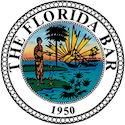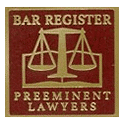Workers’ Compensation Lawyer in Jacksonville
Workers’ Compensation Lawyer
FREE CONSULTATION – NO OBLIGATION
Our workers’ compensation attorneys can assist with your filing for medical payments and/or disability benefits under Florida’s workers’ compensation laws. Work-comp benefits are intended to compensate employees who were injured on the job or became ill due to circumstances of his or her job. When an employer has four or more part-time or full-time employees, the work-comp laws require them to carry workers’ compensation insurance. Our personal injury lawyers specialize in workers’ compensation claims and can provide a no-cost, no-obligation consultation to review the details of your work accident or insurance company’s denial of work-comp benefits.
If you are injured on the job, for example in a ladder accident, roofing accident, or construction site accident, it is important for you to report the accident to your employer as soon as possible. Timely notification to the appropriate persons must occur within 30 days of the accident or your workers’ compensation claim will be denied. No later than seven days after your employer learns of your work-related injuries, he or she must in-turn notify the company’s work-comp insurance carrier of your job-related accident or illness. Should your employer fail to report your injury claim, you can notify the appropriate government agency and ask for free legal assistance. This would also be an opportune time for you to seek the advice of an experienced workers’ compensation attorney to determine the best legal actions for your case.
Under Florida’s workers’ compensation laws, an injured worker is generally entitled to one of two types of workers’ compensation benefits. First, the injured worker can seek the recovery of payments for medically necessary remedial treatments, general care and attendance to include prescribed medications and any medical devices ordered by the work-comp doctor. The second category of workers’ compensation benefits includes payment of money and indemnity benefits for reparation of work-related disability.
Payments for workers’ compensation benefits do not include compensation for the victim’s pain and suffering, loss of enjoyment of life, or similar personal damages. If an injured worker obtains a lump-sum settlement, the worker then assumes responsibility for all future medical expenses related to his or her job-related accident or illness.
Documenting a Workmans’ Comp Claim
The number of regulatory procedures to follow when filing a work-comp claim can intimidate any injured worker, and can add to his or her confusion. We’ve listed some of the standard employee actions to consider when faced with a claim for payment of work-comp benefits (or workers’ compensation disability):
- Immediately notify employer of any injury
- Document time and place of work accident
- Accurately explain how the injury occurred
- List all workplace accident witnesses
- Notify work-comp insurance carrier of injury
- Submit timely appeals for denied benefits
Acting in a timely manner to report all injuries sustained in a work accident is very important when seeking recovery for medical expenses, ongoing coverage or disability benefits. In fact, you should report every work-related accident you’re involved in, even if you aren’t yet sure you’ve sustained an injury. Some injuries are not immediately clear; other times, the extent of the injuries may be underestimated, perhaps significantly. And, even if you aren’t injured, reporting the incident can help your place of work to adjust, improve or implement new safety measures to prevent similar accidents in the future.
Regardless of the type or extent of your injuries, workers’ compensation claims must be filed within two years from the date of an employee’s accidental injuries and one year from the date of the injured worker’s last payment for authorized medical treatments. The employee does not need to prove that the employer was negligent; in fact, sometimes, the employee himself or herself could have been negligent and could still receive workers’ compensation benefits.
This may seem confusing, but a work-comp claim is not the same as a civil lawsuit where you would be suing in response to an ill intention, or a reckless or negligent act. Work-comp claims begin the process for you to request compensation for medical expenses for an injury that occurred while you were working, as well as for any lost wage benefits. This claim can be made because of a specific accident or because of injuries (such as tendonitis) that slowly developed because of repetitive motions. In short, even though negligence may be part of the situation, your situation can be a no-fault case to which workers’ compensation applies.
After the accident, you should see a doctor as soon as possible; ask your employer if you need to see a particular doctor or if you can see one of your choice. If circumstances warrant, go to the emergency room. If you are not satisfied with what the doctor told you, consider getting a second opinion. Sometimes, this visit would be covered under workers’ compensation laws and, even if the visit isn’t covered, the information you gain may be worth the cost as you pursue fair compensation.
If it wasn’t clear whether or not you were injured immediately after the incident—and then you are then diagnosed with an injury—inform your employer so workers’ compensation paperwork can get filed. Follow up to make sure the claim was filed and know that are you are entitled to receive a copy of the paperwork related to the claim.
Workers’ compensation-related mistakes to avoid include:
- Don’t assume that your employer, the insurance company, medical workers, or anyone else involved in the process will necessarily make it easy for you to claim benefits.
- Don’t delay reporting the accident, even if you don’t initially think you were injured. The longer you wait, the easier it can be for you or for witnesses to the accident to forget important details—and, if you wait, employers may be suspicious when you do make the report, even though you’re providing factual information.
- A verbal report alone is not recommended. A written report is best and it should include:
- Precise time
- Precise location
- Exactly how the accident happened
- Names and contact information of any witnesses
- Don’t opt out of receiving medical care. Insist upon seeing a doctor who is authorized by the workers’ compensation carrier. Listen carefully to the doctor’s recommendations and follow them, going to any follow-up appointments. Keep all records, including:
- Medical bills
- Prescriptions
- Receipts for any injury-related expenses
- Mileage driven for doctors’ visits, including for any help you need from mental health services, perhaps for depression and/or post-traumatic stress disorder (PTSD)
- Don’t say, “Oh, I’m all right” or otherwise downplay the extent of your injury. This is true regardless of your motivation, which can include feeling pressured to say this or not wanting to rock the boat at work. You have a right to fair compensation.
- Refuse any offers of an off-the-books settlement by your employer. This is illegal.
- Don’t push too hard to return to your regular routine, post-injury. This can make the injury worse again. Plus, some insurance providers may be keeping tabs on you to monitor how active you are—and this can harm your claim.
- Don’t neglect to seek help when you need it. This type of law can be quite complicated.
Workers Comp Discussion with Bill Harrell
If you’re injured on the job, there is a Florida statute that means you should have your medical costs covered. In many cases, though, a workers’ comp attorney is needed to ensure the process is appropriately monitored and you receive coverage owed to you.
All too often, the situation is more complicated than it might first seem. Let’s say, for example, that you drive a delivery truck for a living and, one day, as you’re driving down the road, a semi-truck smashes into you. You should be entitled to workers’ compensation, but you may also have a personal injury case.
So, a workers’ comp case isn’t always as simple as the injured party receiving free medical care. This form of law is complex, but the workers’ compensation lawyers at Harrell & Harrell, P.A., are here to help you get the compensation you deserve.
As one more example of a workplace situation that can quickly become quite complicated: What if the workers’ compensation situation involves a subcontractor on a job? In this case, who is responsible for health care costs? Workers’ comp law can intersect with multiple other types of law, which can make it much harder to understand. Fortunately, we deal with these situations all the time—and can help you with yours.
MORE ABOUT FLORIDA WORKERS’ COMPENSATION LAWS
Workers’ compensation lump-sum settlements are not mandatory but represent a voluntary agreement between the injured employee and the company’s work-comp insurance carrier. Additionally, there are no provisions under the work-comp laws that require your employer to hold your job until you are able to return to work. Existing workers’ compensation laws do, however, prevent your employer from firing you because you have filed or may be attempting to file a workers’ compensation claim for work-related injuries or illness.
Workers’ compensation law is regulated by the Department of Financial Services and the Office of the Judges of Compensation Claims. Relevant Florida states include §440.02 and §440.10. Under certain circumstances, you may be entitled to a variety of benefits, including:
- Retraining/education
- Rehabilitation
- Prescription drugs
- Travel expenses to and from medical appointments
Although work-comp claims are often thought of in connection with falls or falling objects, they can also be because you needed to lift heavy objects and injured yourself. It could be because of exposure to toxic elements that lead to mesothelioma. It could be because your hearing was damaged due to exposure to especially loud noises.
Citing two of our cases, a railroad conductor hurt his shoulder when throwing a railroad switch. In this case, the jury found the railroad liable for numerous federal violations relating to switch and track maintenance; his injuries (rotator cuff and torn labrum) prevented him from returning to work and he was awarded $2,200,000.
In the second case, a bridge tender was operating a drawbridge over the Manatee River. When she showed up to work, she was attacked and received injuries to her face, head, knee, and abdomen. The railroad had not provided sufficient lighting or sufficient security. The award: $1,953,000.
It bears repeating that employer negligence is not a necessary component of workers’ compensation cases. When it does exists, however, this can add to the complexity of the case.
DISABILITY BENEFITS
When a workers’ compensation doctor determines that an injured employee cannot perform his or her duties at work (permanently or temporarily), then the employee may be entitled to temporary total disability benefits (TTD). The TTD benefits are typically paid every two weeks for an amount equal to two-thirds of the worker’s pre-injury average weekly wage (AWW). If an injured employee’s doctor determines that he or she can return to work, but with restrictions, then the worker may qualify for temporary partial disability benefits (TPD) as long as he or she is earning less than 80% of his or her pre-injury average weekly wages. Like temporary total disability benefits, the work-comp payments for temporary partial disability cannot exceed 66.66% of the injured worker’s average weekly wage.
MAXIMUM MEDICAL IMPROVEMENT (MMI)
A worker’s combined compensation from temporary total disability and temporary partial disability payments are only paid to a maximum of 104 weeks after the work accident or until the work comp doctor determines the injured employee has reached maximum medical improvement. Under Florida’s workers’ compensation laws, you are not paid for the first seven days of either type of work-comp disability. However, when the employee’s temporary and/or partial disability extends beyond 21 days, the workers’ compensation insurance company will reimburse payments for the initial seven days following the work accident.
Once an injured employee has reached the limits for maximum medical improvement, he or she may qualify for impairment benefits (IB). When an employee’s work-related injuries are deemed permanent, the worker is entitled to receive IBs based on the permanent impairment rating assigned by the worker’s doctor. IBs are paid at the rate of 75% of the employee’s average weekly TTD benefits for the following periods: two weeks for each percentage point of impairment up to 10%; three weeks for each percentage point of impairment from 11% up to 15%; four weeks for each percentage point of impairment from 16% up to 20%; and six weeks for each percentage point of impairment from 21% and higher.
EXPERIENCED WORKERS’ COMP LAWYERS
As you can see, workers’ compensation law can be very confusing. Call Harrell & Harrell, P.A., today at 904-251-1111 or 1-800-251-1111 to speak with one of our qualified workers’ compensation attorneys in Jacksonville about your case.
Don’t settle for less than you deserve.®
–>Testimonial
First, starting my journey with Harrell and Harrell, I felt so many mixed emotions. "Is it worth it?" "Do I want to deal with the legal system?" And the list goes on. I am here to tell you that my experience with Jamie Holland, Holt Harrell and their team of professionals could not have been more supportive, helpful, and encouraging. For me, going through a traumatic accident, surgery, and a long recovery process is bad enough. And when you add the stress of a lawsuit and in my case a trial, it’s one of the most difficult things I have had to face. But I will say that I never felt alone. Jamie Holland and Holt Harrell were by my side throughout every obstacle and every triumph I endured. They always kept me involved in the entire process and up to date on what was going on. I never felt like I was left in the dark and any questions that I had were answered promptly. I also really felt their passion for their job as lawyers and that just made my trust and respect for them grow continually on a daily basis. My experience with Harrell and Harrell could not have been a more positive one and although I hope to not have to use their services again anytime soon, I highly recommend them.


























